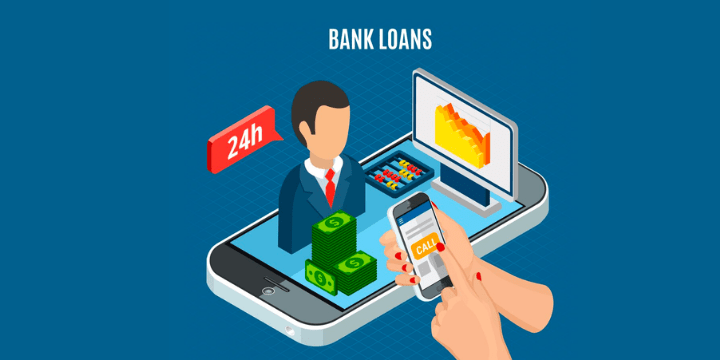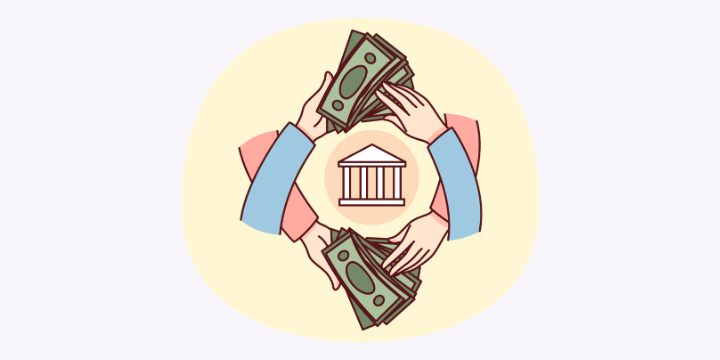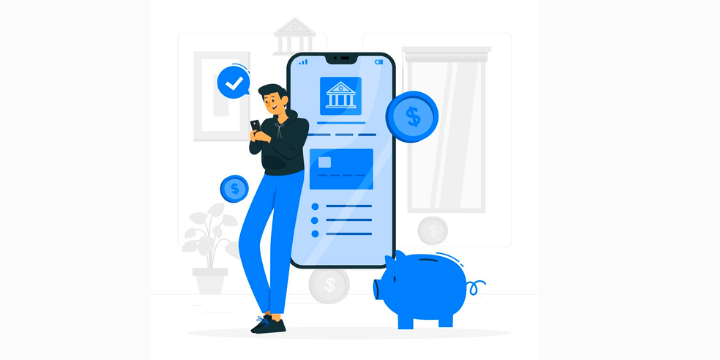It is very common to think that banking transactions and online banking overall are always safe. We rely on multi-factor authentication and strong passwords which are definitely good ways to protect your online activities but is it really so safe? Isn’t it better to use some additional layer of security? Let’s find it out.

What is online banking and is it safe?
Online banking allows you to conduct different financial transactions over the Internet: checking account balances, transferring funds, depositing checks, paying bills, applying for loans or credit, managing investments, and many more. With online banking, you don’t need to go to the bank and wait in a line – simply click on a few buttons and get the necessary transaction done.
Most of the time online banking is safe. You can use a desktop browser or a smartphone app to conduct financial transactions, it’s generally a secure way to manage your finances. There might be some risks associated with online banking, so you must ensure your passwords are strong and protect yourself from malware and Wi-Fi spying. What are those risks?
Potential Risks associated with online Banking transactions
The main danger on the Internet for online banking users is definitely phishing attacks. Fraudsters often create fake websites that look identical to your bank or send emails pretending to be from your bank. If you visit the fake website or click on the link – your personal financial information such as user names, passwords, PINs or Social Security numbers might be stolen immediately.
Be aware that fraudsters are taking advantage of new technology. For example, scammers might call you and pretend to be official representatives of your bank. They might try to obtain the passwords to your online banking system. If you do this, In less than a minute they can take over your bank account and steal your money.
Another risk is malicious software such as viruses, worms, Trojan viruses, spyware, adware, and ransomware. If you download a malicious file from an unreliable source, criminals can use it to steal your sensitive information, send unwanted ads, demand payment, or make your device vulnerable to more malware.
You should also be attentive while using public Wi-Fi as it is a well-known target for different hackers to steal your data. Accessing online banking over unsecured public Wi-Fi networks can lead to dangerous consequences.

Tips for Secure Internet Banking
There are some rules for safe online banking. By following them, you give an extra degree of protection to your financial data.
Use Strong Passwords
You have probably heard that passwords must be unique and complex. Don’t use your date of birth and your name combination. An example of a strong password is $y7*pxIW8!qM4)2!EenM4
Enable Two-Factor Authentication or 2FA
It is a method of online verification where you must pass two or more forms of authentication to verify your identity. An example of two-factor authentication is using a password and a one-time passcode sent to your mobile phone via SMS.
Use Secure Connections
It is recommended to avoid public Wi-Fis and use a secure, private connection. If you have to connect to Wi-Fi – use a VPN which is an effective online tool designed to help you to secure your credentials while using a public network.
Log Out After Sessions
It’s especially important when using someone else’s device, a shared device, or your work device. Log out after the session, and no one can access your financial information. Even better, delete all the history. It’s also a good practice if you use private browsing mode. If you are using your own personal computer with a secure, private connection, which is pretty much only used by you, you may choose not to log out.
Use the Bank’s Official App/Website
Always access your bank account through legitimate and secure channels as the bank’s official app or website. They are made with robust security measures to protect your sensitive financial information from potential threats as mentioned above.
What is a VPN?
A VPN is an effective online tool that encrypts your data when you connect to a VPN server. It enables users to send and receive data as if their devices were directly connected to the internet through a private network, providing privacy, security, and anonymity.
The VPN keeps you anonymous by not revealing your actual IP address. It also routes your internet connection through the VPN server, providing you with a new IP address from the VPN server’s location.
Our team at Planet VPN values the concept of secure web surfing. We offer you robust encryption with many servers available.

VPN for online banking
Is a VPN an effective tool to secure your online transactions? Indeed, having a VPN application is beneficial for making online transactions secure.
As mentioned above, a VPN encrypts your data, making it hard or even impossible to read and intercept. This is particularly relevant for online purchases, where you provide data such as banking details and credit card information, which are extremely important. Therefore, a VPN is very useful for protecting your online banking information.
However, you should remember that a VPN hides your real IP address, which might look suspicious to your bank. The best solution is to choose an IP address from the country you live in; otherwise, you risk being blocked from entering the system.
Planet VPN for your online banking transitions
You definitely add a layer of security to your online banking transactions when using a VPN. However, you need to find a reliable VPN provider. At Planet VPN, we offer you a free VPN connection to try, with the ability to upgrade to premium.







